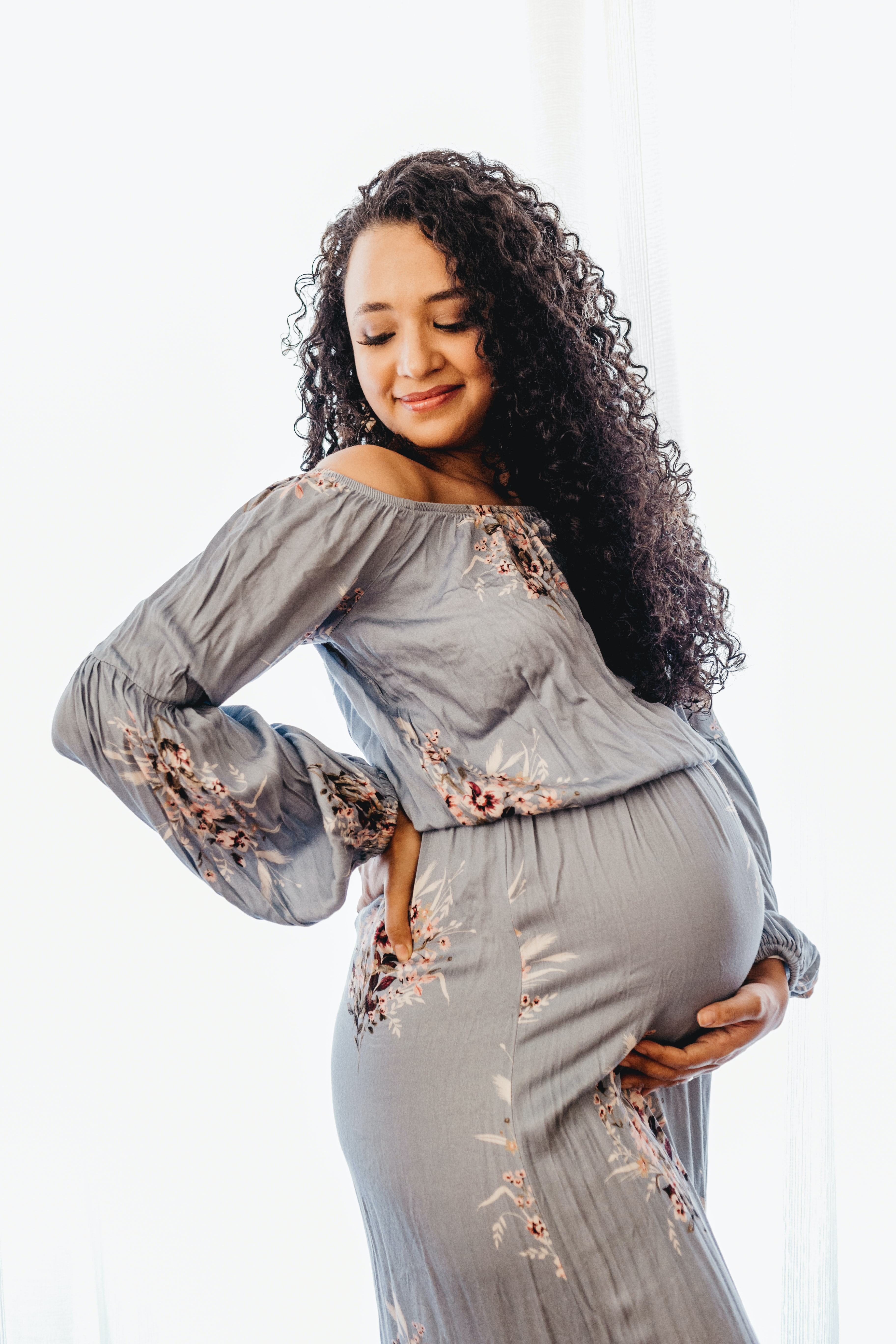
1. I have a midwife. Do I need a doula?
Doulas are not required, but are a beneficial and important part of your labor, birth, and postpartum team, if you choose to have one. Midwives provide the medical care necessary for you and your baby during your pregnancy, birth, and the immediate postpartum period. Doulas provide physical, emotional, and informational support as well as advocacy during this same period. Midwives are also able to (and should) offer physical, emotional, and informational support throughout this process, but their primary concern will always be the physical health and safety of the pregnant person and their baby. Doulas do not provide medical advice, clinical tasks, or diagnose conditions. Having both a doula and a midwife will ensure that your physical and emotional needs are met. Doulas can support you regardless of your birth setting and provider.
2. I have a “high risk pregnancy.” Can I give birth at home?
Midwives are independent providers of “low risk pregnancies,” meaning the pregnant person and baby are both healthy and there are no active complications that put either the pregnant person or baby at an increased risk for complications during the labor, birth, or immediate postpartum period. For “high risk pregnancies,” standard of care will require the midwife to provide care for you in pregnancy in collaboration with a physician (OB/GYN generalist or a Maternal Fetal Medicine specialist), with the likely plan to deliver in a hospital. Home births are safest for those with low risk pregnancies with the ability to transfer to a hospital if needed. If your pregnancy is considered “high risk” and your midwife or OB/GYN recommends delivery in a hospital, many midwives who provide care in the hospital setting are still able to provide labor, birth, and immediate postpartum care for high risk pregnancies in collaboration with their physician colleagues.
3. Do I need a pediatrician as well as a midwife in out-of-hospital birth ?
Midwives are able to provide newborn care for up to 28 days of life, as long as there have been no known fetal complications throughout the pregnancy and there are no complications that have occurred during labor, birth, or postpartum period that require physician care. By 28 days of life, the parent(s) will need to have identified a pediatrician to provide continuing care for their infant.
4. What practice settings do different midwives work in?
CNMs are able to provide care in all practice settings including hospitals, birth centers, homes, private practices, community clinics, etc. However, most CNM training is hospital-based, thus many will work within the hospital system.
CPMs typically provide care in homes and birth centers, with some also practicing in clinics and doctors’ offices.
The care provided in each setting depends on many things, most importantly the practice setting itself, the provider, and their scope of practice. Out of hospital care (birth center and home birth) tend to be less interventive or medicalized compared to hospital care.

5. Who are the ideal candidates for out of hospital births?
Those with a singleton pregnancy, a low risk pregnancy, no chronic illnesses and no pregnancy complications.
6. Does insurance cover out of hospital midwifery care?
Sometimes PPO insurance companies will reimburse for out of hospital birth services at the out-of-network or sometimes the in-network rate. Each midwifery practice approaches insurance billing a bit differently so make sure to ask your midwife.
7. How much does out of hospital birth cost?
In the Bay Area it is usually between $4,000- 6,500, this includes prenatal care (usually 30- 60 minute visits), attendance at the birth and postpartum care (this usually includes home visits in the postpartum time). This fee does not include your birth kit, lab work or ultrasounds, or a birth tub.
8. Does having a midwife help reduce the risk of racial disparities in maternal mortality and morbidity?
According to this joint statement from ACNM, Black Mamas Matter Alliance, and International Confederation of Midwives they say yes!
“Multiple studies and research demonstrate that a diverse and highly trained certified nurse midwife (CNM) and certified midwife (CM) workforce, within a team-based care model, offer a viable solution to reducing maternal mortality, increasing access to unbiased high-quality care, addressing nationwide maternity care shortages, and improving maternal and neonatal outcomes. To recognize the vital role that midwives have in transforming health care around the world, the World Health Organization has designated 2020 as the Year of the Nurse and the Midwife. ACNM, BMMA, and ICM applaud this effort and are committed to supporting the advancement, integration, and sustainability of midwives in the U.S. and throughout the world.” For the full statement from ACNM, Black Mamas Matter Alliance, and International Confederation of Midwives, click here.
9. How do midwives and OBs work together? How do consultations and transfers work?
In the hospital setting CNMS and OB GYNS work in tight collaboration. CNMs tend to care for low risk patients and OB GYNS for more complicated pregnancies (Gestational Diabetes, Pre-Eclampsia, Twins etc). If for some reason the patients they are taking care of are becoming higher risk in labor, the OBGYNs are updated, consulted and sometimes can become part of your care team also.
In the out of hospital birth community, most midwives have relationships with hospitals in the area and ask you to sign a release of records if you are getting your lab work/ ultrasounds there.
If the need arises to transfer to the hospital from an out of hospital birth, they will give all the relevant information from your prenatal care to the health care team. Some midwives can even stay with you as a companion during your transfer, though they no longer are your main health care provider in that setting.
10. How do I find a midwife?
American College of Nurse Midwives has a tool to find a CNM in your area: https://www.midwife.org/find-a-midwife
California Association of Licensed Midwives has a tool to find an CPM/LM in your area: https://calmidwives.org/find-a-midwife/
Ask your community! Do you have friends/ co-workers/ family members that have had a good experience with their in hospital/ out of hospital midwife?